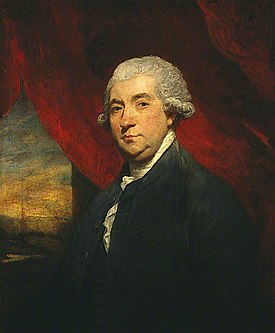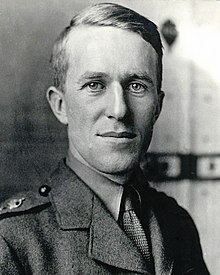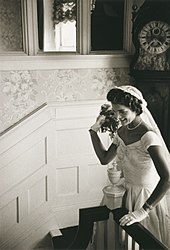May 19 is the 139th day of the year (140th in leap years) in the Gregorian calendar. There are 226 days remaining until the end of the year.
Holidays
- Christian feast day:
- Commemoration of Atatürk, Youth and Sports Day (Turkey, Northern Cyprus)
- Greek Genocide Remembrance Day (Greece)
- Hồ Chí Minh’s Birthday (Vietnam)
- Malcolm X Day (United States of America)
History
In 639, Ashina Jiesheshuai and his tribesmen assaulted Emperor Daizong at Jiucheng Palace.
In 715, Pope Gregory II is elected.
In 804, Alcuin, English monk and scholar (b. 735) dies. He was also called Ealhwine, Albinus or Flaccus, was an English scholar, ecclesiastic, poet and teacher from York, Northumbria. He was born around 735 and became the student of Archbishop Ecgbert at York. At the invitation of Charlemagne, he became a leading scholar and teacher at the Carolingian court, where he remained a figure in the 780s and 790s. He wrote many theological and dogmatic treatises, as well as a few grammatical works and a number of poems. He was made Abbot of Tours in 796, where he remained until his death. “The most learned man anywhere to be found”, according to Einhard‘s Life of Charlemagne, he is considered among the most important architects of the Carolingian Renaissance. Among his pupils were many of the dominant intellectuals of the Carolingian era.
In 1051, Henry I of France is married to Anne of Kiev.
In 1445, John II of Castile defeats the Infantes of Aragon at the First Battle of Olmedo.
In 1499, Catherine of Aragon is married by proxy to Arthur, Prince of Wales. Catherine is 13 and Arthur is 12.
In 1535, French explorer Jacques Cartier sets sail on his second voyage to North America with three ships, 110 men, and Chief Donnacona‘s two sons (whom Cartier had kidnapped during his first voyage).
In 1536, Anne Boleyn, the second wife of Henry VIII of England, is beheaded for adultery, treason, and incest. She was Queen of England from 1533 to 1536 as the second wife of King Henry VIII and Marquess of Pembroke in her own right. Henry’s marriage to Anne, and her subsequent execution, made her a key figure in the political and religious upheaval that was the start of the English Reformation. Anne was the daughter of Thomas Boleyn, 1st Earl of Wiltshire, and his wife, Lady Elizabeth Howard, and was educated in the Netherlands and France, largely as a maid of honour to Claude of France. She returned to England in early 1522, to marry her Irish cousin James Butler, 9th Earl of Ormond; the marriage plans ended in failure and she secured a post at court as maid of honour to Henry VIII’s wife, Catherine of Aragon.
In 1542, The Prome Kingdom falls to the Taungoo Dynasty in present-day Burma.
In 1568, Queen Elizabeth I of England orders the arrest of Mary, Queen of Scots.
In 1643, Thirty Years’ War: French forces under the duc d’Enghien decisively defeat Spanish forces at the Battle of Rocroi, marking the symbolic end of Spain as a dominant land power.
In 1649, An Act of Parliament declaring England a Commonwealth is passed by the Long Parliament. England would be a republic for the next eleven years.
In 1655, The Invasion of Jamaica begins during the Anglo-Spanish War.
In 1743, Jean-Pierre Christin developed the centigrade temperature scale.
In 1749, King George II of Great Britain grants the Ohio Company a charter of land around the forks of the Ohio River.
In 1776, American Revolutionary War: A Continental Army garrison surrenders in the Battle of The Cedars.
In 1780, New England’s Dark Day: A combination of thick smoke and heavy cloud cover causes complete darkness to fall on Eastern Canada and the New England area of the United States at 10:30 A.M.
In 1795, James Boswell, Scottish-English lawyer and author (b. 1740) dies. He was a lawyer, diarist, and author born in Edinburgh, Scotland. He is best known for the biography he wrote of one of his contemporaries, the English literary figure Samuel Johnson, which the modern Johnsonian critic Harold Bloom has claimed is the greatest biography written in the English language. Boswell’s surname has passed into the English language as a term (Boswell, Boswellian, Boswellism) for a constant companion and observer, especially one who records those observations in print. In A Scandal in Bohemia, Sir Arthur Conan Doyle‘s character Sherlock Holmes affectionately says of Dr. Watson, who narrates the tales, “I am lost without my Boswell.”
In 1802, Napoleon Bonaparte founds the Legion of Honour.
In 1813, Napoleon defeats a numerically superior Russian and Austrian Army at the Battle of Bautzen
In 1828, U.S. President John Quincy Adams signs the Tariff of 1828 into law, protecting wool manufacturers in the United States.
In 1845, Captain Sir John Franklin and his ill-fated Arctic expedition depart from Greenhithe, England.
In 1848, Mexican–American War: Mexico ratifies the Treaty of Guadalupe Hidalgo thus ending the war and ceding California, Nevada, Utah and parts of four other modern-day U.S. states to the United States for US$15 million.

In 1864, Nathaniel Hawthorne, American author (b. 1804) dies. He was an American novelist and short story writer. He was born in 1804 in Salem, Massachusetts to Nathaniel Hathorne and the former Elizabeth Clarke Manning. His ancestors include John Hathorne, the only judge involved in the Salem witch trials who never repented of his actions. Nathaniel later added a “w” to make his name “Hawthorne” in order to hide this relation. He entered Bowdoin College in 1821, was elected to Phi Beta Kappa in 1824, and graduated in 1825. Hawthorne published his first work, a novel titled Fanshawe, in 1828; he later tried to suppress it, feeling it was not equal to the standard of his later work. He published several short stories in various periodicals which he collected in 1837 as Twice-Told Tales. The next year, he became engaged to Sophia Peabody. He worked at a Custom House and joined Brook Farm, a transcendentalist community, before marrying Peabody in 1842. The couple moved to The Old Manse in Concord, Massachusetts, later moving to Salem, the Berkshires, then to The Wayside in Concord. The Scarlet Letter was published in 1850, followed by a succession of other novels. A political appointment took Hawthorne and family to Europe before their return to The Wayside in 1860. Hawthorne died on May 19, 1864, and was survived by his wife and their three children. Much of Hawthorne’s writing centers on New England, many works featuring moral allegories with a Puritan inspiration. His fiction works are considered part of the Romantic movement and, more specifically, Dark romanticism. His themes often center on the inherent evil and sin of humanity, and his works often have moral messages and deep psychological complexity. His published works include novels, short stories, and a biography of his friend Franklin Pierce.
In 1897, Oscar Wilde is released from Reading Gaol.
In 1907, Benjamin Baker, English engineer, designed the Forth Bridge (b. 1840) dies. He was an eminent English civil engineer who worked in mid to late Victorian era. He helped develop the early underground railways in London with Sir John Fowler, but he is best known for his work on the Forth Bridge. He made many other notable contributions to civil engineering, including his work as an expert witness at the public inquiry into the Tay Rail Bridge disaster. Later, he helped design and build the first Aswan dam.
In 1911, Parks Canada, the world’s first national park service, is established as the Dominion Parks Branch under the Department of the Interior.
In 1917, the Norwegian football club Rosenborg BK was founded.
In 1919, Mustafa Kemal Atatürk lands at Samsun on the Anatolian Black Sea coast, initiating what is later termed the Turkish War of Independence.
In 1921, The United States Congress passes the Emergency Quota Act establishing national quotas on immigration.
In 1922, The Young Pioneer Organization of the Soviet Union is established.
In 1934, Zveno and the Bulgarian Army engineer a coup d’état and install Kimon Georgiev as the new Prime Minister of Bulgaria.
In 1935, T. E. Lawrence, Welsh-English colonel (b. 1888) dies. He was known professionally as T. E. Lawrence, was a British Army officer renowned especially for his liaison role during the Sinai and Palestine Campaign and the Arab Revolt against Ottoman Turkish rule of 1916–18. The breadth and variety of his activities and associations, and his ability to describe them vividly in writing, earned him international fame as Lawrence of Arabia, a title which was used for the 1962 film based on his World War I activities. Lawrence was born illegitimate in Tremadog, Wales, in August 1888 to Sir Thomas Chapman and Sarah Junner, a governess who was herself illegitimate. Chapman had left his wife and first family in Ireland to live with Sarah Junner, and they called themselves Mr and Mrs Lawrence. In the summer of 1896 the Lawrences moved to Oxford, where in 1907–10 young Lawrence studied History at Jesus College, graduating with First Class Honours. He became a practising archaeologist in the Middle East, working at various excavations with David George Hogarth and Leonard Woolley. In 1908 he joined the Oxford University Officer Training Corps, undergoing a two-year training course. In January 1914, before the outbreak of World War I, Lawrence was co-opted by the British Army to undertake a military survey of the Negev Desert while doing archaeological research. Lawrence’s public image resulted in part from the sensationalised reportage of the revolt by an American journalist, Lowell Thomas, as well as from Lawrence’s autobiographical account, Seven Pillars of Wisdom (1922). In 1935, he was fatally injured in a motorcycle crash in Dorset.
In 1941, Viet Minh, a communist coalition, formed at Cao Bằng Province, Vietnam.
In 1942, World War II: In the aftermath of the Battle of the Coral Sea, Task Force 16 heads to Pearl Harbor.
In 1943, World War II: British Prime Minister Winston Churchill and U.S. President Franklin D. Roosevelt set Monday, May 1, 1944 as the date for the Normandy landings (“D-Day”). It would later be delayed over a month due to bad weather.
In 1950, A barge containing munitions destined for Pakistan explodes in the harbor at South Amboy, New Jersey, devastating the city.
In 1950, Egypt announces that the Suez Canal is closed to Israeli ships and commerce.
In 1958, Ronald Colman, English-American actor (b. 1891) dies. He was an English actor, popular during the 1930s and 1940s. He won an Academy Award for Best Actor for A Double Life (1947), and received further nominations for Random Harvest (1942) and Bulldog Drummond/Condemned (1929, nominated for his work in both). Colman starred in the classic films A Tale of Two Cities (1935), Lost Horizon (1937), The Prisoner of Zenda (1937) and The Talk of the Town (1942). He was seriously wounded by shrapnel in his ankle during WWI, which gave him a limp that he would attempt to hide throughout the rest of his acting career.
In 1959, The North Vietnamese Army establishes Group 559, whose responsibility is to determine how to maintain supply lines to South Vietnam; the resulting route is the Ho Chi Minh trail.
In 1961, Venera program: Venera 1 becomes the first man-made object to fly-by another planet by passing Venus (the probe had lost contact with Earth a month earlier and did not send back any data).
In 1961, At Silchar Railway Station, Assam, 11 Bengalis die when police open fire on protesters demanding state recognition of Bengali language in the Bengali Language Movement.
In 1962, A birthday salute to U.S. President John F. Kennedy takes place at Madison Square Garden, New York City. The highlight is Marilyn Monroe‘s rendition of “Happy Birthday“.
In 1963, The New York Post Sunday Magazine publishes Dr. Martin Luther King, Jr.’s Letter from Birmingham Jail, drafted shortly after his arrest on April 12th during the Birmingham campaign advocating for civil rights and an end to segregation in Birmingham, Alabama. The letter was in response to “A Call for Unity“: a statement made by eight white Alabama clergymen against King and his methods, following his arrest, and became one of the most-anthologized statements of the African-American Civil Rights Movement.
In 1971, Mars probe program: Mars 2 is launched by the Soviet Union.
In 1986, The Firearm Owners Protection Act is signed into law by U.S. President Ronald Reagan.
In 1991, Croatians vote for independence in a referendum.
In 1994, Jacqueline Kennedy Onassis, American journalist, 37th First Lady of the United States (b. 1929) died of non-Hodgkin’s lymphoma, a form of cancer. She commonly known as “Jackie” (July 28, 1929 – May 19, 1994) was the wife of the 35th President of the United States, John F. Kennedy, and First Lady of the United States during his presidency from 1961 until his assassination in 1963. Five years later she married Greek Argentine shipping magnate Aristotle Onassis; they remained married until his death in 1975. For the final two decades of her life, Jacqueline Kennedy Onassis had a career as a book editor. She is remembered for her contributions to the arts and preservation of historic architecture, her style, elegance, and grace. She was a fashion icon; her famous ensemble of pink Chanel suit and matching pillbox hat has become symbolic of her husband’s assassination and one of the lasting images of the 1960s.
In 1997, The Sierra Gorda biosphere, the most ecologically diverse region in Mexico, is established as a result of grassroots efforts.
In 2007, President of Romania Traian Băsescu survives an impeachment referendum and returns to office from suspension.
In 2010, The Royal Thai Armed Forces concludes its crackdown on protests by forcing the surrender of United Front for Democracy Against Dictatorship leaders.
In 2012, Three gas cylinder bombs explode in front of a vocational school in the Italian city of Brindisi, killing 1 and injuring 5 others.
In 2012, A car bomb explodes near a military complex in the Syrian city of Deir ez-Zor, killing 9 people.
In 2015, The Refugio oil spill deposited 142,800 U.S. gallons (3,400 barrels) of crude oil onto an area in California considered one of the most biologically diverse coastlines of the west coast.
In 2016, EgyptAir Flight 804 crashes into the Mediterranean Sea while traveling from Paris to Cairo, killing all on board.






